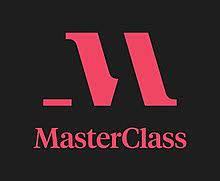David Lynch is an incredible filmmaker known for his surrealistic style of feature films.
I had the opportunity to learn from the legend in his MasterClass, where he talks about creativity and filmmaking as a base while covering the much wider spectrum of world cinema.
If you wonder whether to choose David Lynch MasterClass or not, the verdict towards the end of this review will conclude.
In this review, I will skim David Lynch’s MasterClass, give an in-depth explanation of his lessons and workbooks involved, give detailed insights into modules, the pros & cons, and my experience in learning from him.
Quick Summary Of David Lynch MasterClass
Are you running out of time? Here is a short summary of the full review of David Lynch MasterClass below:
You get to learn the following:
- Catching ideas
- Building creativity
- Casting the right actor
- Collaborating with music composers
- David Lynch’s style of filmmaking
Suitable for: Anyone who is keen on learning the wide spectrum of filmmaking and wants to know what all goes into making a successful feature film.
The number of lessons and time taken: 13 lessons, less than 3 hours.
Quick verdict: In the MasterClass by David Lynch, he shares his knowledge about filmmaking and the style he uses in his films. With his films as examples, it was easier to understand different dynamics about each aspect in film knowledge, be it scoring, lighting, or even working with actors.
A Glimpse into David Lynch’s MasterClass:
David Lynch’s MasterClass comprises topics like catching ideas, finding appropriate actors, production design, film scoring, and much more in-depth coursing on the film spectrum.
His MasterClass has 13 lessons that take less than 3 hours to complete fully. You can actually finish it in one sitting like you would binge-watch a Netflix series. At least, that’s what I did.
The MasterClass platform is filled with courses of different genres like sports, film-making, photography food, business, science, and many more. Famous instructors like Hans Zimmer MasterClass teaches film scoring, Steven Martin MasterClass teaches comedy, Werner Herzog MasterClass teaches film making, Christina Aguilera Masterclass teaches singing, and so on.
Note: To help you get detailed insights into the MasterClass platform, we have done a detailed review of MasterClass here.
There is a lot of information available on MasterClass here.

The course talked about the process that goes into making a film and how creative you can progressively get better with each feature film. David constantly gives advice and helpful tips.
Like every other MasterClass, you also get an additional PDF workbook to get going with the course.
As a bonus, David Lynch also has a downloadable file for his students. It’s like a personal note from his side for better learning about filmmaking. I’d suggest you make use of it.
Through his MasterClass, he breaks down his secrets to a surrealistic style of making films, which I am signed up for.

- Learn 🎥 Filmmaking from one of the best filmmaker
- Learn how to implement all the elements of filmmaking
- Easy To Understand Lessons
David Lynch: Who is he?
David Lynch is an exceptional filmmaker who directed films like The Elephant Man, Twin Peaks, and Eraserhead. Known for his unique style of filmmaking, he instantly became an inspiration for many.
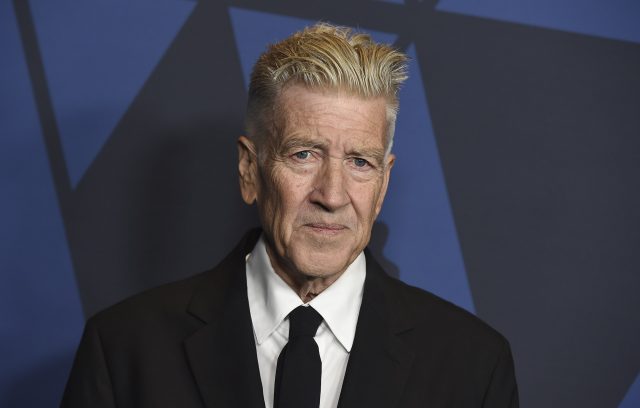
The surrealism in his films is the most eye-catching and talked about thing in the film fraternity.
Lynch has been honored with the Academy Honorary Award, Cannes Best Director Award, and several prestigious awards, which are testimony to his efforts in cinema.
What are the lessons in David Lynch’s MasterClass like?
Teaching about an entire industry can be seen as an impossible task, but with David Lynch’s MasterClass, I can say that it is made possible. The variety of topics he covered in his lessons is limitless and beneficial at the same time.
I was able to understand his teaching and would like to share it with you. Though he covered such an extensive course in his MasterClass, it is almost impossible to explain it. Hence, I will quickly skim through David Lynch’s MasterClass and share all the crucial takeaways from each lesson.
Let’s get going, shall we?
1. Starting with an idea
You certainly cannot succeed if you don’t have an idea to start with, which David is encouraging his students to do as an idea can bring the foundation to the desired work in any field.

“Ideas are like fish. If you want to catch little fish, you can stay in the shallow water. But if you want to catch the big fish, you’ve got to go deeper. Down deep, the fish are more powerful and more pure.They’re huge and abstract. And they’re very beautiful.”
He also urges creativity to blend in with each basic idea that comes to mind, turning it into an iconic film. Surprisingly, most of his hit films were once an idea like this.
There is not much secret to a story. You have to feel and visualize the film before taking any further action, he adds. Catching ideas is the first step in filmmaking.
2. How creative are you?
Followed by developing ideas comes the creative process that outshines an already existing idea. Interestingly, an idea can be turned into something big with a tad bit of creativity added to it.

“We think we understand the rules when we become adults but what we really experience is a narrowing of the imagination.”
Along with creativity, David goes in-depth about the writing process. He talked about how writing can instantly bring numerous ideas and boost creativity in a film’s visualization.
He even talked about how time and resources can play a significant role in the process, raw and honest from his side.
David is considerate that you need materials to catch hold of the creative set-up that you had in mind and suggest tips to do it with lesser investment.
3. Practical over theoretical
He claims that a filmmaker must experiment with certain things rather than gain theoretical knowledge about them. Sometimes, you cannot accurately replicate the knowledge you gained in a theoretical study about the subject.
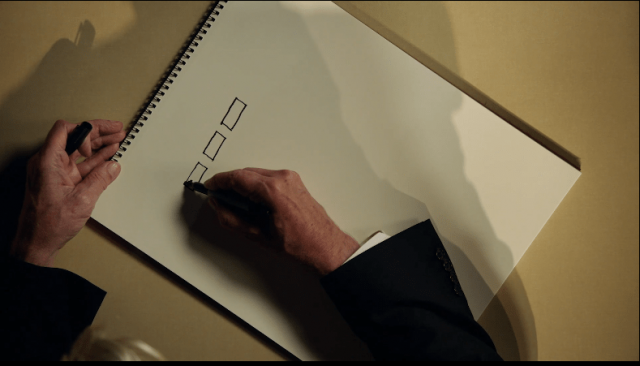
That is why practical knowledge about the nature of a subject is efficient in learning the field better. Even David suggests his students do the same. You can take note of this.
“I don’t think that people accept the fact that life doesn’t make sense. I think it makes people terribly uncomfortable.”
Obviously, he is not asking to make a feature film but to try applying the learnings in small projects and activities. Or you can even experiment for the sole happiness of filmmaking.
4. Casting, working, and bonding with actors
In this section, David shares impeccable insights about casting the appropriate actor, its approach, and the creative relationship with actors.

It is no wonder that casting an actor is not easy because you cannot call someone into the set and label them as an actor. He recommends his students complete the actor’s complete analysis and interpret how well the actor can resonate with their chosen character.
“It's so freeing, it's beautiful in a way, to have a great failure, there's nowhere to go but up.”
He also shares the work experience with celebrated actors and how essential it is to build a smooth work environment on-set with the actors because if it is not, it will reflect on the shots.
He casually shows a few examples throughout the section to understand what goes into what and how it is done, so watch out for those.
5. Light, sound, and design
Lastly, the couple of lessons towards the end covers the proper usage of lighting, how to add sound, and production design which are some of the extreme subjects in filmmaking.

Apart from shooting a film, these are the ones that make a film to what it is shown in the theatres.
“Black has depth.. you can go into it.. And you start seeing what you're afraid of. You start seeing what you love, and it becomes like a dream.”
Here, David says that you can collaborate with cinematographers to get that vision of the film, use lighting to set the mood, and use storyboards to the most considerable advantage.
Alongside the cinematography, he talks about film scoring and how it can instantly take the film to the next level. I agree with this because, for example, even if you are watching a movie, if the music in the movie sounds dull, you will not watch the entire movie.
In the end, David shares a separate section where he talks about failures and drops some Ted-talk level motivation for his students. Indeed, it was pretty motivating and empowering as well.
6. The bonus chapter
A rewarding lesson towards the end called Transcendental Meditation is something that David had for his students where he explains what that term is.
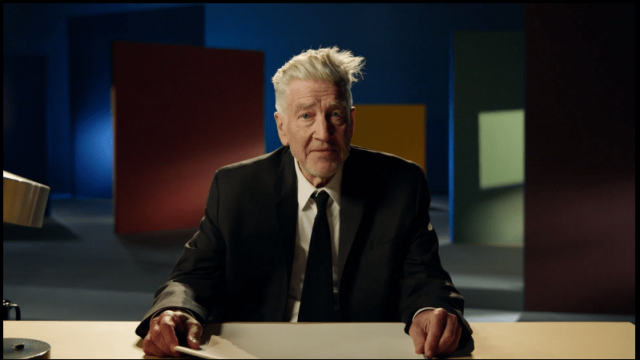
I felt it was weird to add a random lesson until I realized that he shares how effective transcendental meditation can effectively catch ideas.
He claims that it also helps in boosting creativity and much more towards building consciousness.
Who is David Lynch’s MasterClass made for?
While taking up the course, I realized that David is taking the effort and trying to mold his students to replace film school’s knowledge through his course. Some complex topics are smoothly broken down for easy understanding. That is what I mainly liked about his MasterClass.
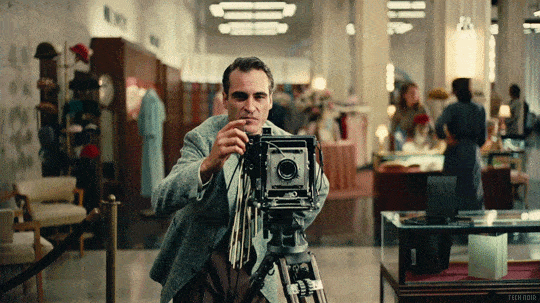
Keeping in mind that some of his students might be noobs to the field, he categorized his lessons accordingly so that everyone comprehends his teaching and learns simultaneously.
Since he covers beginner to intermediate level topics about filmmaking, David Lynch’s MasterClass might not be recommended to filmmakers who are already hustling in the field.
Apart from that, as an exception, if you are working in the field already and have certain doubts about the diverse styles in filmmaking, I am sure all your queries will be answered.
What is the budget of David Lynch’s MasterClass?
Let me quickly dive into the exciting pricing of MasterClass. You won’t believe the benefits you will be able to acquire by just buying this one single plan which is priced at
$180/- per year (billed at $15/- per month)
Don’t quickly jump to an instant conclusion without any further thought. Here is something that I found out about this special pricing: you literally get FREE access to all the courses available in MasterClass, which means you are paying for one and getting 80+ courses for free.
I was able to take three courses at the same time. Trust me. You can do it too. While taking up David Lynch’s MasterClass, I also took Hans Zimmer’s MasterClass about film scoring because film scoring plays a significant role in filmmaking, and I was able to take that course with this plan.
Also, there was another course on filmmaking handled by Werner Herzog. So, if I had the opportunity to learn from multiple legends simultaneously, why not? I gave that a shot too.
Even if you are satisfied with any of the courses in MasterClass, there is an option of a 30-day refund policy, which you can make use of.
Learn Filmmaking With David Lynch
How long does it take to complete David Lynch’s MasterClass?
As I mentioned earlier, I completed David Lynch’s MasterClass in one sitting.
It ended so fast that I did not realize that the MasterClass actually came to an end because his storytelling got me focussed on his lessons. I did take some notes, though.

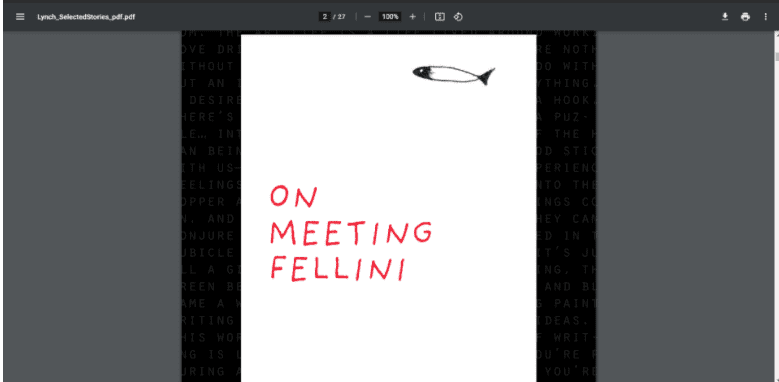


The thing is, each lesson in David Lynch’s MasterClass is about 10-15 minutes long on average, so even if you spend one afternoon taking up the course, you can efficiently finish the entire course by the time you get your evening chai.
What can be Improved in David Lynch’s MasterClass?
Though I learned a lot of things from David Lynch’s MasterClass, there were very few points that made me doubt the course as a whole.
Non-interactive workbooks
As a tradition, MasterClass provides workbooks with every course that they produce. In David Lynch’s MasterClass, there is a bonus piece called “Class Companion Piece,” which contains some of the best takeaways from the course.
But I could not find any engaging or interactive sections like I usually find in other courses.
No interaction with the instructor
Although the feature of interacting with an instructor is not fully available in all the courses, it could have been installed in David Lynch’s MasterClass since filmmaking is a vast spectrum, and many might be popping up with unusual doubts about diverse aspects.
One-on-one interaction would have helped me understand better with a personalized video from the instructor.
Are there any Alternatives to David Lynch’s MasterClass?
Well, if you are not comfortable with the lessons taught by David Lynch, don’t worry, I got you many more interesting options to choose from MasterClass itself. They are as follows:
- Werner Herzog MasterClass “Teaches Filmmaking.”
- Martin Scorsese MasterClass “Teaches Filmmaking.”
- Jodie Foster MasterClass “Teaches Filmmaking.”
- Mira Nair MasterClass “Teaches Independent Filmmaking.”
- Spike Lee MasterClass “Teaches Independent Filmmaking.”
- Ken Burns MasterClass “Teaches Documentary Filmmaking.”
You have a variety in choosing courses to learn filmmaking. There are independent filmmaking courses taught by Mira Nair and Spike Lee, astonishingly, while Ken Burns has a MasterClass on documentary filmmaking. At last, you have not just one or two but three filmmaking courses.
With the annual subscription ($180/- per year), I’d suggest you take all three courses if you are keen to learn more about filmmaking from multiple professionals in the film industry.
If I were you, I’d grab this opportunity right away! I swear.
Pros & Cons of David Lynch’s MasterClass:
Each course has its best advantages to the worst downsides. In this MasterClass by David Lynch, I noticed some of the pros and cons, which are as follows:
Pros:
- Creative teaching about filmmaking.
- Opportunity to learn from a legend.
- Incredible learning experience.
- Prominent lessons.
Cons:
- Lack of an engaging workbook.
- No interactive sessions.
Final Verdict on David Lynch MasterClass Review (2024)
David talked more about the creativity that makes each film and what makes it stand out; that is something I found very interesting to learn because courses usually cover the standard format used in a profession to teach about its skill. He excelled in teaching as well.
Explore David Lynch MasterClass
It is no wonder why his MasterClass itself is named “David Lynch teaches Creativity and Filmmaking,” which means you get to learn creativity from a filmmaker’s perspective.
That being said, if you are someone interested in filmmaking, you will enjoy his course.
Frequently Asked Questions
Is David Lynch’s MasterClass too long?
No, David Lynch’s MasterClass is not too long. It takes less than 3 hours to complete.
Is it possible to get David Lynch’s MasterClass for free?
Unfortunately, it is not possible to get David Lynch’s MasterClass for free, but there is a 30-day refund policy that you can try.
What is the cost of David Lynch’s MasterClass?
The subscription plan costs $180/- per year (billed as $15 per month), where you also get the benefit of accessing other 80+ courses in MasterClass.
Are there any refund policies in MasterClass?
Yes, there is a 30-day refund policy available in MasterClass.
- CFI Discount Code (April 2024) – 40% OFF Coupon - April 3, 2024
- 25% Grammarly Student Discount (April 2024) - March 28, 2024
- College Dropout Rates 2023-24(Demographic Stats) - March 20, 2024


